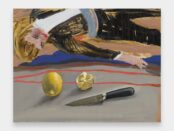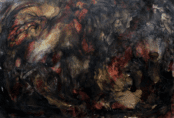In Southern Italy over Easter if you go to some small towns you’ll see extremely physical acts of penitence performed during Holy Week. The sight of men purposefully drawing blood and walking prayerfully, bare-foot and bloodied around the churches in their home town, performing the same brutal ritual over and over through the night, as an act of penitence on behalf of themselves and the other devotees, was an experience one does not quickly forget.
This confessional act returns to mind when viewing the new works by Georg Baselitz at White Cube in Bermondsey. Titled, A Confession Of My Sins, while this show is far removed from the strange medieval-type self-flagellation of rural Italy, both events can be characterized as ‘confessions of sin.’ The sins against God that the Catholic penitents were supposedly atoning for would seem to be a great distance from the paintings and works on paper by Baselitz assembled in the gallery space. And yet.
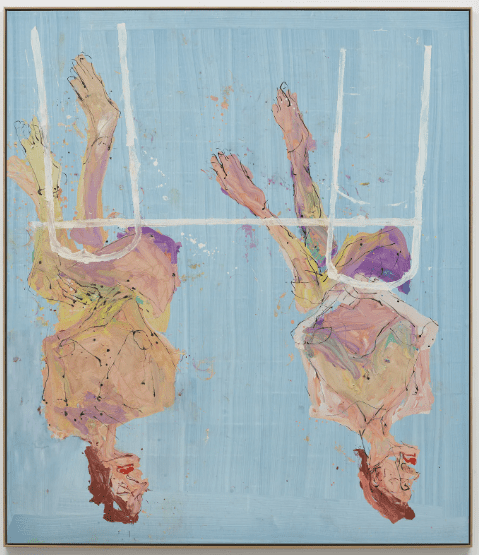
A Confession of My Sins features a large body of work, over fifty pieces, featuring large canvas paintings and smaller works on paper, all produced in an intensive one-year period, by the now 86-year old artist. All the works are essentially portraiture of one kind or another, many of Baselitz and his wife/muse, Elke, and function as an accounting of a painterly life, a summary of ideas, influences, references and motifs, drawn from his entire career and transferred into one of the most moving exhibitions staged in London for some time.
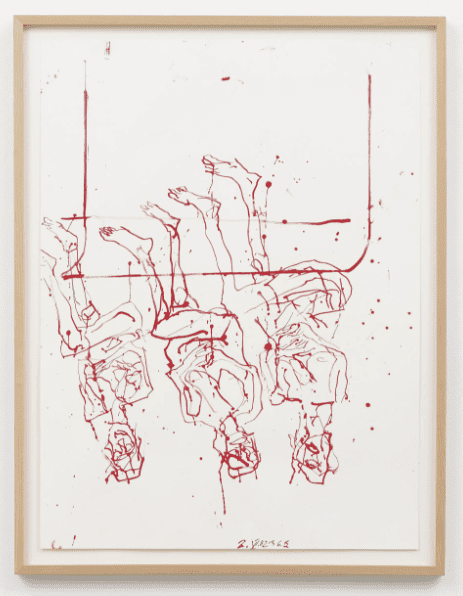
Baselitz was one of the first to hang his works upside down, supposedly in the belief that the irritation of them being inverted would cause the viewer to look more closely, and that practice continues in this exhibit, where all but two or three of the larger works are hung upside down, and given that they are all portraits, mainly of the artist and his wife, irritation could be a distraction were it not for the sheer compelling beauty of these wild works. The works on paper are single colour, mostly red, and virtually line drawings, a practice echoed in the painting style of Tracey Emin, but many the larger pieces hum with vivid colour and possess a youthful energy and exuberance even as they are marked, quite literally, with the tracks of the artist’s fragile humanity. Known for painting his canvases on the ground, the works are scratched and marked with lines left by the artists walking frame and mobile painting table, a testament to his own health struggles, but also to his resolve, one man’s frail humaneness left in the canvas, which gives the works another layer of both interest and profundity.
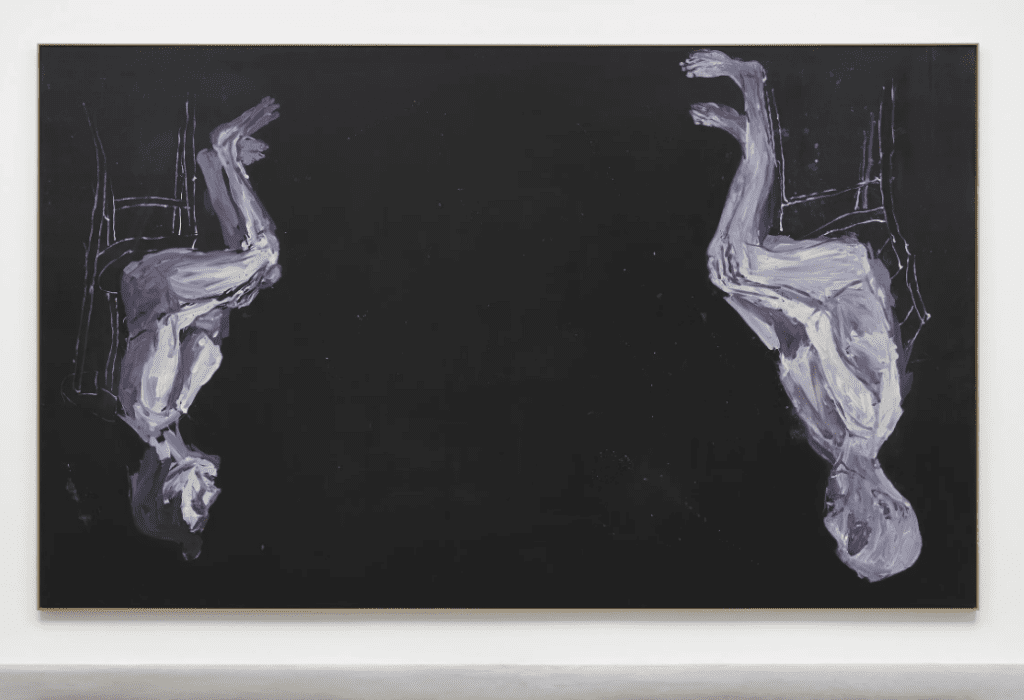
Baselitz’s childhood and early life in post-war Germany and his influences, De Kooning, Antonin Artaud, James Whistler, and Edvard Munch to name a few, meet in his larger existential hunger to process the destruction which shaped his life into renewal and reinvention, in both his life and his art.
‘In a sense, what painters really do when they paint is paint a situation that they are in: they paint actions.’
Georg Baselitz
The German philosopher and musicologist Theodor Adorno used the term lateness, or late-style, to describe the notion that the work made by artists towards the end of their lives held a sort of energy and disruptive essence that agitated against prevailing aesthetics and perhaps hinted at something new. He was writing principally about music and musicians and applied this theory in his posthumously published Essays on Music, where he examined the late work of Beethoven, in it he argued that mortality and finitude create special conditions that can allow an artist, or art, to reach its fullest potentials. As Leah Kardos, writes in her book, Blackstar Theory (Bloomsbury Academic, 2022), “late period work can often be characterized by a complex, contrary and questioning spirit, more agitated and restless than serene or reconciliatory, going against what one might expect from artists of advancing age.”
Baselitz’s ‘confession of sins’ would seem to be a confession of a rich and well-lived life, dedicated to craft, to influences, and ultimately to the reality and fragility of what it means to be human, may we all be guilty of such sins.
‘Georg Baselitz: A Confession of My Sins’ runs at White Cube Bermondsey from 10 April -16 June 2024. White Cube Bermondsey, 144 – 152 Bermondsey Street, London SE1 3TQ
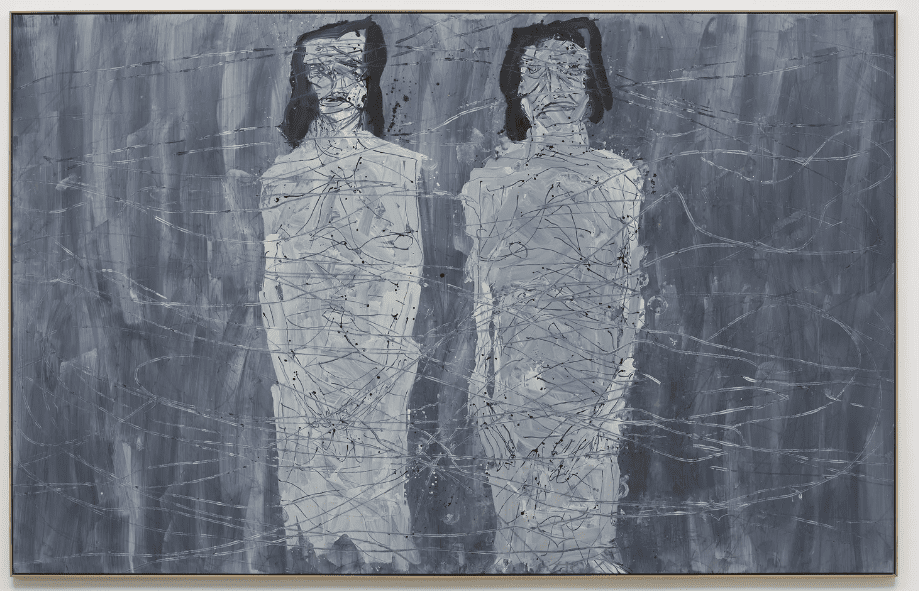

Barry Taylor writes and speaks about the intersections of philosophy, theology and contemporary culture. In past, he was the road manager for AC/DC during the Bon Scott era before becoming a Los Angeles theologian.




